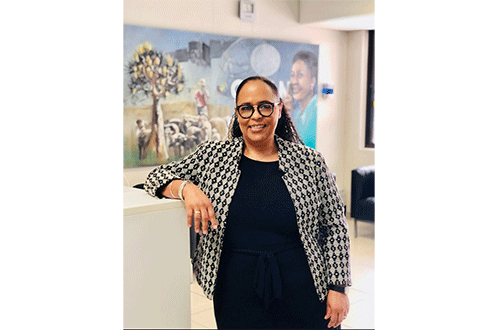The Communications Regulatory Authority of Namibia (CRAN) gave notice that on Friday, 17 February 2023, it has commenced with the auctioning process for radio
frequency spectrum bands 694-790 MHz and 790-862 MHz allocated to International Mobile Telecommunications (IMT) services on a primary basis.
These spectrum bands are commonly referred to as the 700 MHz and 800 MHz and utilised by Telecommunications Service Licensees
to provide 4G and or 5G mobile services in Namibia and to fulfil rollout obligations aimed at ensuring communications services in all regions to 80% of the population.
“The authority assumes full responsibility for spectrum assignment based on the principles of independent decision-making and impartiality
and it is the authority’s primary and legislative objective to promote competition in the telecommunications sector through efficient spectrum management.
“To this end, the authority adopted a holistic approach in determining a roadmap for the release of spectrum for the period 2022 to 2024,” stated Katrina Sikeni, acting CRAN CEO.
She added that this process was designed to provide Telecommunications Service Licensees with regulatory certainty on which spectrum will be made available for assignment to facilitate the rollout of telecommunications and broadcasting networks and implementation of emerging technologies, platforms, and applications to the benefit of the end
user.
5G is a fundamental platform for the Fourth Industrial Revolution (4IR) and achieves more efficient spectrum use, higher data rates, lower latency, and ubiquitous connectivity.
It is extremely reliable, near to universal coverage and its high-speed mobile broadband can cost-effectively support growing data traffic demand
such as video downloads and or streaming and better support low-power Internet
of Things (IoT) solutions on a massive scale.
Information and Communication Technology (ICT) networks and services play a vital role in the socio-economic development and digital transformation of Namibia. The authority makes spectrum available subject to the imposition of licence conditions to attain national strategic objectives as set out in the National Broadband Policy to bridge the digital divide in Namibia by ensuring the Namibian population
will be provided with broadband connection at competitive prices and according to industry standards by addressing key issues such as access, affordability, quality, and usage, Sikeni added.
She also said the expansion of broadband services by licensees will improve quality of telecommunications services and inclusivity for Namibians living in unserved and underserved areas at prescribed broadband speeds and quality of service minimum
parameters.
Additionally, the spectrum will be utilised to foster digital transformation beyond the delivery of broadband, through implementation of e-education, e-health, e-agriculture, e-government, and other use cases to realise the true benefits of new technologies.
Moreover, the spectrum to be assigned will be utilised for mobile services, providing broadband services with a download speed of not less than 20 Mbps to ensure meaningful connectivity. This will enable schools to have sufficient network connectivity, in order to provide online teaching lessons. The authority reserves the right to revise the speed to ensure compliance with future policy reforms.
Spectrum auction is one of the spectrum assignment methods set out in the spectrum licensing regulations and is chosen given the high demand for spectrum in the 700 MHz and 800 MHz bands. The process will be conducted as per the provisions of the spectrum licensing regulations and processes as set out in the auction bidding
document.
“Only Telecommunications Service Licensees can apply to participate in the auction process, as they were consulted on the preferred assignment method and concluded that the spectrum be made available for assignment via spectrum auction following a beauty contest model.
All bidders are required to submit a detailed business case, inclusive of rollout plans for the next three years aimed at expanding broadband connectivity in regions with less than 80% 4G population coverage to meet the national objective of 80% population coverage,” Sikeni concluded.



